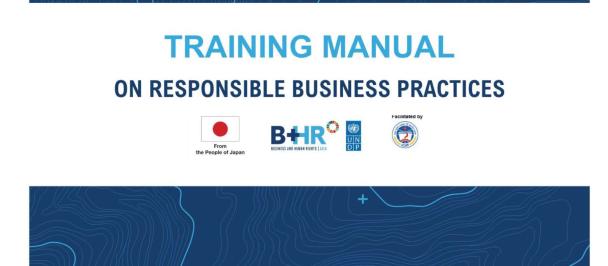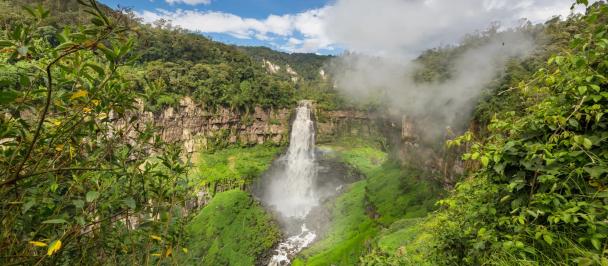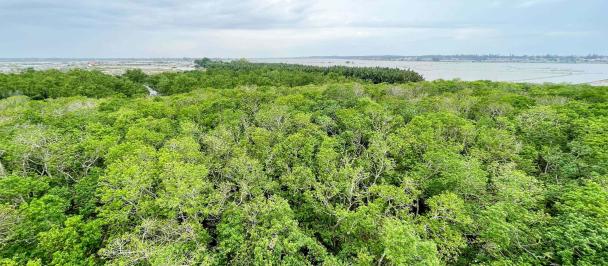Policy Discussion: The Human Rights & Climate Change Nexus
October 18, 2022
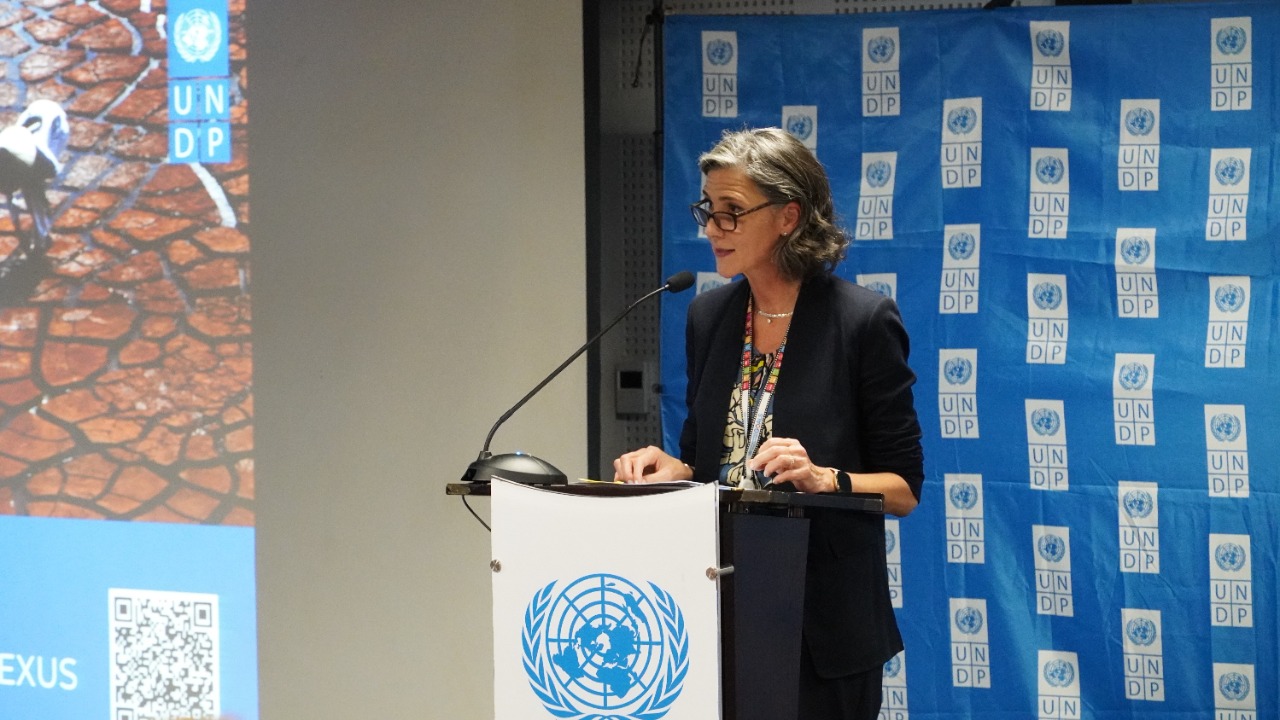
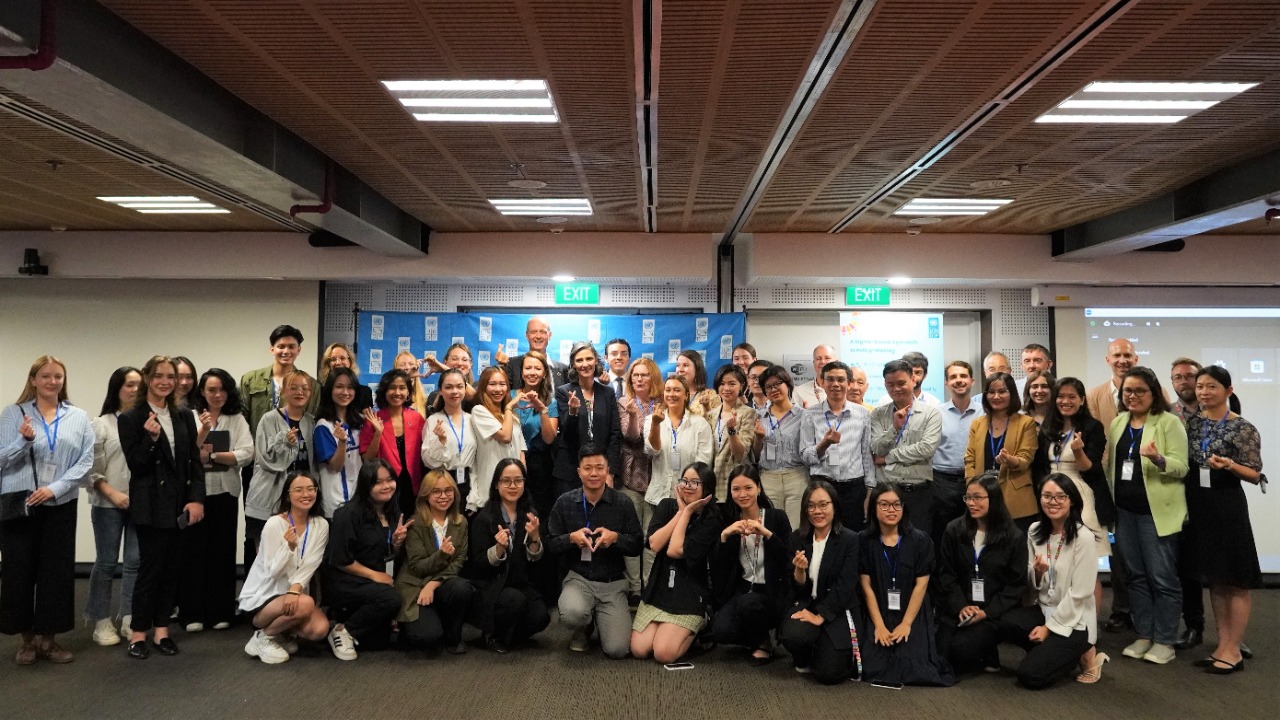
Colleagues from ministries, development partners, and leaders and representatives of non-governmental organizations, academia and the UN
Good morning, Xin Chao!
Welcome to this Policy Discussion on the Human Rights & Climate Change Nexus at the Green One UN House. Today’s discussion is particularly timely in light of Viet Nam’s successful bid for a 3 year membership to the Human Rights Council. With its voluntary pledge to protect and promote human rights in response to climate change, a key pillar during its term, Viet Nam will shoulder a leadership role in this nexus debate.
Earlier this year UNDP and Viet Nam’s Ministry of Foreign Affairs hosted an international workshop with a large variety of national and international stakeholders on the climate change impacts on the human rights enjoyment of the most vulnerable. The discussion and the presentation of the paper today are UNDP-supported follow-ups of the policy dialogue we held then.
Dear guests and participants,
As many of you know, Viet Nam is among the world's most vulnerable countries to climate change. It is therefore especially encouraging that Prime Minister Pham Minh Chinh committed to net zero at COP26 and highlighted the need to ensure that (and I quote) “[a]ll that we do must be nature-based and centered around people, for they are the actors and drivers of sustainable development, in order to leave no one behind.”
Indeed, climate change threats, as they intensify, will constitute one of the greatest challenges to the enjoyment of human rights in our era. Today, we will have the opportunity to discuss with experts from the field how to achieve just, green and sustainable environmental development with principles of equity and human rights at the center.
We also would like to present a new policy paper by UNDP, supported by the Embassy of Norway, that provides an overview of the nexus between Climate Change and Human Rights. Our guiding questions for this study were two: 1) which human rights are affected by climate change impacts? And 2) how can we address those impacts in a way that minimizes or remedies adverse effects on human rights enjoyment, instead of exacerbating them?
The study answers those questions by providing an overview of human rights impacts and roles and responsibilities of stakeholders based on UN normative instruments on Human Rights and Climate Change. On the how, UNDP recommends to policy makers and government authorities at all levels to ensure that climate change adaptation and mitigation policies and measures, including the Just Energy Transition, are effectively grounded on a Human Rights-Based Approach that put people’s rights at the center and meet the core principles of participation, accountability, equality, empowerment, and legality.
Ladies and gentlemen,
I would like to offer three reflections and recommendations for a more inclusive and rights-based approach to climate action in Viet Nam to ensure that no one is left behind - the core aspiration at the heart of the 2030 Agenda and the Sustainable Development Goals.
First, it is fundamental to integrate a human rights analysis of the implications of climate change as part of the broader and mandatory policy impact analyses.
Considering that Viet Nam has ratified the core human rights treaties such as the ICESCR, ICCPR, as well as the Paris Agreement, human rights standards should be integral to Viet Nam’s implementation of climate policies to fulfil commitments made at COP 26.
For reasonable predictions on the human rights impacts of implementation measures, a solid baseline of the existing impacts of climate change on human rights enjoyment is vital. In that context, it is hard to understate the importance of using data and evidence in the planning and policy-making efforts around these complex and integrated policy areas.
Subsequent monitoring and evaluation can only be adequate when a coherent approach to data transparency and access to information is ensured from the outset. For instance, UNDP complements Government data with PAPI (Provincial Governance and Public Administration Performance Index) data, including a dedicated set of indicators on environmental governance. And we developed the Climate Risk Index as an open-source platform to update climate risk information, increase risk-informed planning and enhance transparency by utilizing scientific evidence-based risk assessments.
Second, a whole-of-society approach is needed to mobilize the innovation, expertise and collaboration required to tackle the climate crisis. The voices of women, youth, migrants, ethnic minorities, academia and social organizations are crucial to sustainable policy outcomes. Therefore, their participation and consultation in planning and policymaking should be an integral requirement of those processes.
Not only is their participation essential to drive a green, inclusive, and resilient future for Viet Nam, they are themselves the most significant agents of change and implementors of climate actions.
In this context, the role of advocates for environmental and human rights is important. Independent experts and advocates have an essential role in fostering public debate on environmental rights and climate change action. To fulfil that vital function, their inclusion needs to be protected by law and in practice.
In Viet Nam, for example, UNDP together with the Ministry of Environment and Natural Resources supported a youth cohort from all regions to formulate two Special Reports on Youth for Climate Action, in which they laid out their roadmap to accelerate youth-led climate actions. And tomorrow we will hear the voices of women leading climate action on the frontline of the climate crisis at the launch of a UNDP Viet Nam podcast ‘Descendants of Hai Bai Trung’.
Encouragingly, Viet Nam’s voluntary pledges to the Human Rights Council and support for recommendations in the third UPR cycle also underscore the importance of participation, consultation and engagement of the communities and organizations on the ground.
Third, voice, participation, and data collection and transparency are not enough if there is no accountability.
Communities and individuals must be able to hold policy makers accountable to their international and domestic commitments. Therefore, mechanisms to ensure dialogue, access to information, and legal remedy help resolve disputes and provide effective remedies and are an essential part of our call for climate justice.
National Assembly, the Supreme Court, central and local governments, and business all have roles to ensure the oversight of equitable environmental policies, but also to respond to citizen’s and communities’ human rights enjoyment, including the right to effective remedy. Capacity building efforts and training of public officials, judges and legal practitioners, among others, is a key priority to help prepare state institutions to address the complex issues that are arising.
The engagement and legal awareness of the public is crucial for their understanding of their rights and how to seek their enforcement. Education on human rights impacts of climate change and legal empowerment should therefore be a priority focus, especially for the groups most vulnerable to climate change.
We, at UNDP, are deeply committed to supporting stakeholders in Viet Nam to ensure the planning for climate change adaptation, mitigation, just energy transition and environmental protection, are aligned with Human Rights standards. UNDP is passionate about supporting Viet Nam’s commitment to net-zero emissions by 2050 and getting there in an inclusive and participatory way that leaves no one behind.
Lastly, I would like to acknowledge the active participation by our local and international NGO and youth partners here today and in policy-making processes now and in the future. Grassroots voices and community representatives are the most important perspectives in our discussions on the human rights protection of vulnerable groups, and essential for sustainable policy outcomes. Thanks also to our international partners for their commitment to today’s topic and ongoing support in the area of human rights, climate change, and circular economy.
As the UN General Assembly determined this summer in a historic resolution; access to a clean, healthy and sustainable environment is a universal human right. And in turn, the planet needs everyone’s involvement to stay healthy. Together, let’s move towards policy solutions that are truly just, equal, transparent, participatory, empowering, and accountable.
Thank you! Xin cảm ơn!

 Locations
Locations